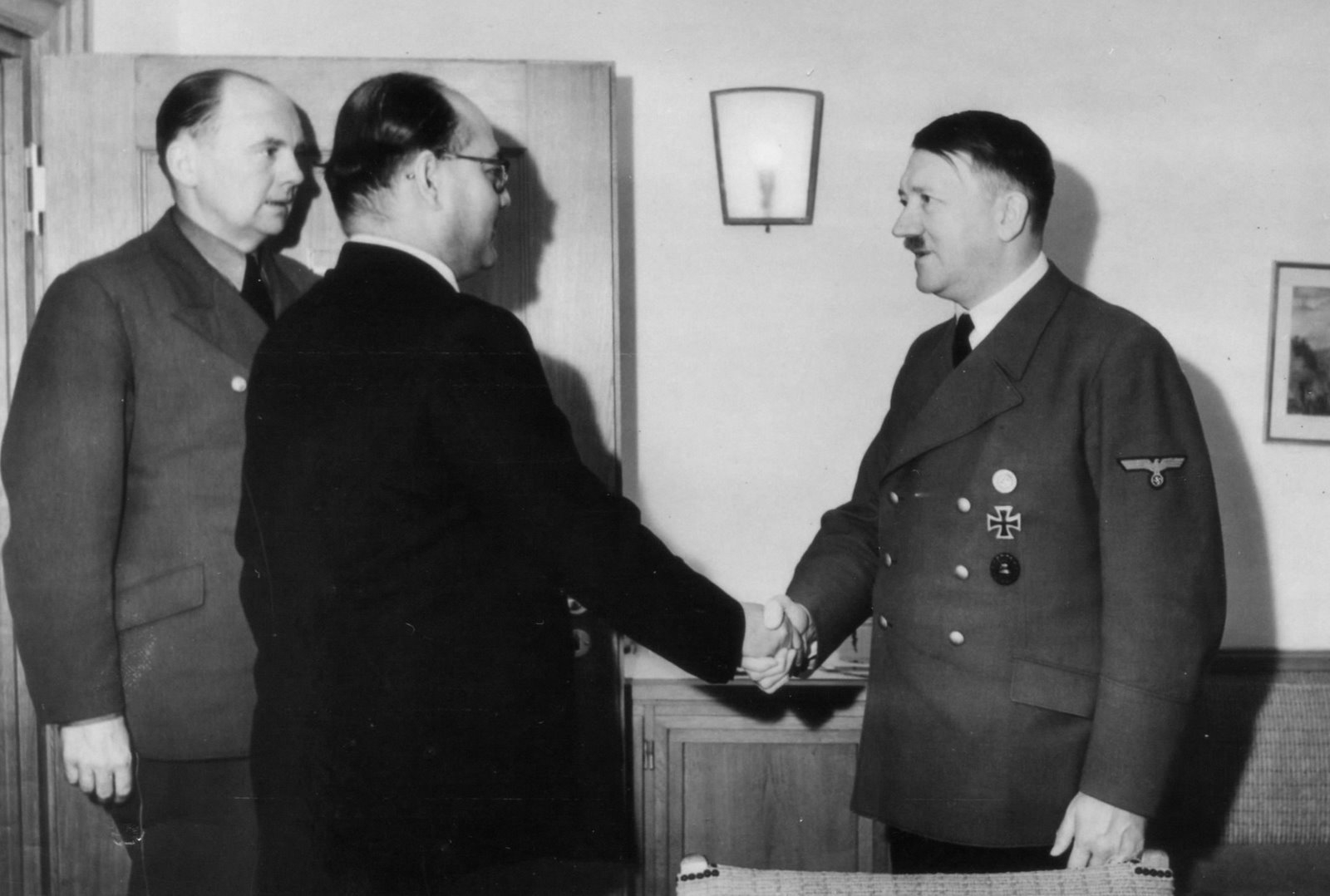Chris Cutrone
The “anti-imperialist Left” considers itself opposed to all U.S. government action as “imperialist” on principle. But, as Trotsky wrote to his followers in 1938, “Learn to think!” while one may oppose the government politically, to oppose the government putting out a fire, especially when there is no alternative agency for doing so, is nonsense. But the “Left” today is not the inheritor of Trotsky, but rather of what he pitilessly assailed, the policy of the Stalinist “Popular Front Against War and Fascism” of the 1930s, for which the shibboleth was, “Which side are you on?”
The idea is that the defeat of imperialist policy creates possibility for an alternative, and therefore one must always be against imperialism to be on the side of an alternative to it. Historically, Marxists have understood such a strategy in terms of either “revolutionary defeatism” or “revolutionary defensism.” Simply put, the defeat of an imperialist power is seen as providing the possibility for a political alternative to the government of the imperialist country; whereas the defense of a country against imperialist attack is seen as providing the possibility for a political alternative in the subaltern country Download lenovo driver. Importantly, these are not pacifist positions against war, but rather political military strategies in time of war, moreover with the aim of revolution.
Historically, there are two examples of success of these strategies of revolutionary defeatism and revolutionary defensism: the role of the Bolsheviks in the Russian Revolution is regarded as a success of revolutionary defeatism, in which the defeat of the Tsarist Russian Empire undermined the government and gave rise to political and social revolution; and Mao’s Communists in the Chinese Revolution, in which the defense of China against Japanese imperialist attack undermined the nationalist Kuomintang and allowed for Communist-led revolution. The point of revolutionary defensism was to be better defenders of the country than the nationalists could be, in that the nationalists, in upholding the nation-state as such, must necessarily compromise with global capitalism—“imperialism”—in ways the Communists, as anti-capitalist, would not Download the latest version of Google Earth Pro. This did not mean to be better nationalists than the nationalists. Socialism, let alone Marxism, was not meant to be a political ideology of “national liberation,” but rather of global political and social transformation, which was meant to better—and indeed truly, because more fundamentally able to—meet the needs of liberation from national oppression under capitalism.
Today, such specificities and true horizons of politics of social emancipation are lost in the “anti-imperialism” of the pseudo-“Left.” Today’s “Left” has more in common with the Indian National Army (INA), which sought help from the Japanese against the British during WWII. But this was not the Communist but rather the fascist version of “anti-imperialism.” It should not be the Left’s. (Indeed, Hitler hosted INA leader Subhas Chandra Bose in Berlin as a fellow “anti-imperialist.”) As the Burmese nationalist Aung San, father of democratic activist Aung San Suu Kyi, put it, “The British sucked our blood, but the Japanese ground our bones.” (( Quoted in Field Marshal Sir William Slim, Defeat into Victory, Cassell & Co, 2nd edition, 1956.)) Mao and his Chinese Communist Party celebrated their WWII allies U.S Download Lumion 7. atomic bombing of Hiroshima and Nagasaki. The German and Japanese national-fascist oppositions to the U.K. and U.S.-led global capitalist “imperialist” order were no good. Neither are today’s oppositions.

Indian nationalist leader Subhas Chandra Bose meets Adolf Hitler in 1942.
The question today is whether supposed “revolutionary” defeatism in the U.S. and “revolutionary” defensism in the targets of its military interventions, for example, will actually lead to socialist revolution or any kind of beneficial outcome in either the U.S download mac youtube. or those countries it attacks.
The Left must ask: What might be the actual political effects of a defeat for the U.S.?
It is a mistake perpetuated by the 1960s-era New Left, with its experience of the Vietnam anti-war movement, that somehow imperialist counterinsurgency must necessarily fail. Indeed, historically, counterinsurgencies have been far more successful than unsuccessful. The Indian Mutiny of 1857 was quelled; so were the Taiping and Boxer Rebellions of 1850–64 and 1899–1901. The Boers were subdued in 1880–81 and 1899–1902. The U.K. maintained control of Iraq in the 1930s-40s; they waged a successful counter-insurgency against Communists in Malaysia after WWII Download ethereum source. The U.S. was successful in rolling back peasant jacquerie in South Korea in 1950–53. The Greek Civil War 1946–49 resulted in defeat for the Communist insurgents.

The headline on page 1 of The Straits Times newspaper of 1 May 1952 stating: "NOW IT'S $250,000 FOR PUBLIC ENEMY No. 1—if brought in alive." The person referred to (and pictured) was Chin Peng, a long-time leader of the Malayan Communist Party who led a guerrilla insurgency during the Malayan Emergency and afterwards.
Furthermore, the question of political-military strategy regarding “imperialism” is not exhausted or even well informed by ostensible Left-Right distinctions 인스타그램 그림. The U.S. supported the Maoist Communists in Cambodia, the Khmer Rouge, both in and out of power; the U.S. opposed the regime installed by Vietnamese Communist intervention in Cambodia in 1979 by supporting the Khmer Rouge—well after the revelation of the “killing fields”—just as they opposed the USSR-supported regime in Afghanistan with the Mujahideen Islamists. Maoists supported both out of “anti-imperialism,” which found the People’s Republic of China on the same side as the U.S. against “Soviet imperialism” (also in various wars in Africa). Most of the “Left” supported Solidarity in Poland as well. In these instances “anti-imperialism” worked: “Soviet imperialism” was defeated, and there was a “revolution” in the USSR and its Eastern European “sphere of influence.”
Should we expect something similar today regarding the U.S.-led world order Download the Japanese translator? Will defeat for the U.S. in one of its military campaigns result in its collapse? Hardly.
For it would appear that the only instances in which “anti-imperialism” has ever been successful—including in the Russian and Chinese Revolutions—were when there was military support from a more powerful imperialist power: Germany against Russia in WWI; and the U.S. against Japan in WWII.
The mistake of “anti-imperialism” today is in its naturalization of all national states as existing political actors and as domains of potential political action. We are today well past the political compromises of Stalin’s strategy of “socialism in one country.”
However, the deeper history of Marxism, before Stalinism, may yet be instructive in certain ways corn video. Rosa Luxemburg and Karl Liebknecht’s Spartacus League in WWI Germany was “revolutionary defeatist” regarding the German war policy. They did not regard the greater imperialist powers of the time and their alliance, the U.K., the U.S., France and Russia, as the greater enemies of potential progressive-emancipatory political and social change, but rather “the main enemy is at home” meant the German government. This did not mean that they “sided” with the other imperialist powers, as their political opponents—and ultimate executioners—on the German Right insisted. Neither did Lenin and Trotsky’s Bolsheviks side with Germany as the Russian nationalists and their Entente international allies averred. The Provisional Government, overthrown by the Bolshevik-led soviets, fled in a U.K Download shinto driver. diplomatic car, but that didn’t change the fact that for Lenin and Trotsky the Russian nationalists were the “main enemy.” Luxemburg feared the political consequences of Lenin and Trotsky’s potential “embrace” of German imperialism in the Treaty of Brest-Litovsk—what caused the Bolsheviks’ Russian “socialist” opponents to unleash a terrorist campaign against them, bombing Bolshevik Party headquarters and attempting to assassinate Lenin and the German ambassador—but Luxemburg nonetheless endorsed the Bolsheviks in the October Revolution and their soviet government and joined the Third International they led.
The “Left” today is hardly up for the challenge posed by such political necessities, let alone the task of social revolution. “Anti-imperialism” today is not revolutionary but rather counter-revolutionary in that it is a species of the most powerful actually constituted counterrevolutionary political force, nationalism.
“Internationalism” is no longer what it was for Lenin, Luxemburg and Trotsky in the 2nd, 3rd and 4th Internationals, but is rather inter-nationalism, that is, conjunctural alliances between nationalisms, and not revolutionary anti-nationalism as it was historically for socialism and Marxism 탈린 매뉴얼.
Defeatism and defensism today have no progressive-emancipatory political and social content either, for they are not “revolutionary” in any sense beyond, perhaps, the conventional and superficial one of “regime change.” Today’s “Left” agrees with the imperialists in their horizon of politics: the existing international system of national states. The “Left” today may be divided among and within the nation-states, between those who “side with” this or that government policy, but they are all on the same side of accommodating global capitalism—imperialism.
There is no real anti-imperialism, but only various forms of compromise with imperialism, which is regarded pejoratively to denounce merely this or that governmental policy, but is accepted at a deeper level as an unshakeable reality. However, historical Marxists once knew that it will not be possible to move beyond it on this basis. (( See the Platypus Affiliated Society public fora on: “Imperialism: What is it, and why should we be against it?,” in January 2007, an edited transcript of which was published in Platypus Review 25 (July 2010), available online at: <http://platypus1917.org/2010/07/09/imperialism-what-is-it-why-should-we-be-against-it/>; and “What is imperialism? (What now?),” in April 2013, in Platypus Review 59 (September 2013), available online at: <http://platypus1917.org/2013/09/01/what-is-imperialism-what-now/>.)) | §
Originally published in The Platypus Review 60 (October 2013).